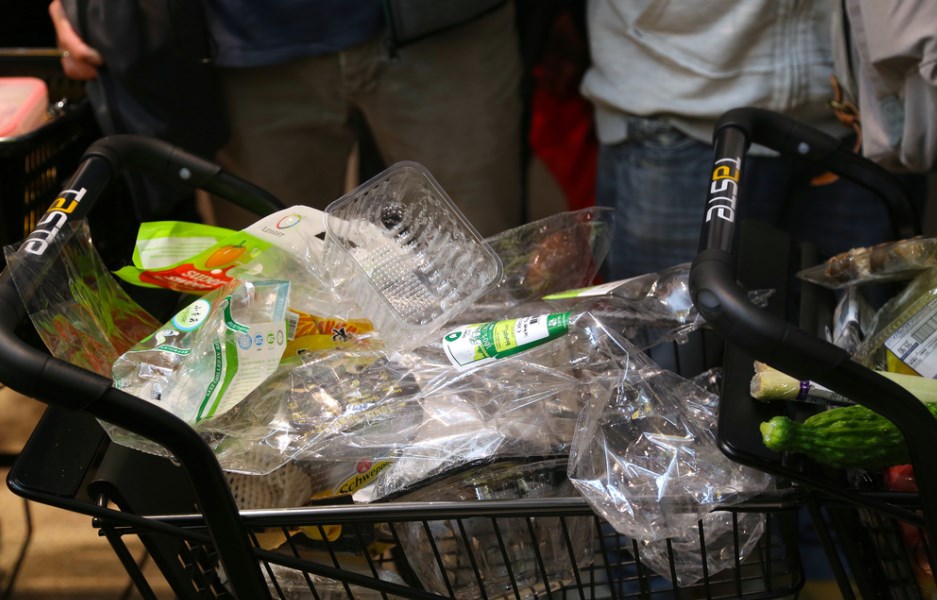By Danny Marks and Justin Robertson
Today is Earth Day. This year’s theme is taking action on climate change, the biggest threat humanity faces. However, this year, due to Covid-19, carbon emissions are already down due to less energy use and industrial production. For example, these dark times saw Italy’s energy demand fall by over 11% in March and carbon emissions falling by 18% in China.

In time, this heartbreaking moment shall pass. Industrial production will rev up, flights will resume, universities will re-open and environmental crises, in turn, will remain at the forefront of human existence.
Included here are the risks of further animal-human disease transmission as climate change and biodiversity loss bring one of the world’s primary virus carriers, bats, into closer contact with other animal and human populations.
Air pollution and climate-induced extreme weather events threaten millions in Asia. In Hong Kong, we are not immune to environmental problems induced by climate change. Most of us remember the trauma of Typhoon Mangkhut, with economic losses of over HK$3 billion and approximately 400 injuries.
However, in Hong Kong we remain largely oblivious to the direct links between our habits and the actions in other parts of the world that enable them. A direct line can be drawn, for example, between Hong Kong’s high meat consumption and wildfires in the Amazon.
Given that universities play key roles in society—advancing new ideas, bringing together different groups of society, acting as role models, and training a new generation of thinkers and doers—we believe that Hong Kong’s universities can do more to become sustainability champions.
First, our universities should focus their research and operations on reducing greenhouse gas (GHG) emissions. Writing in the SCMP, Chandran Nair remarked: “It’s worth being frank: controlling carbon emissions was last century’s battle and we failed miserably.”
Our response should be an all-out effort in the next decade to cut emissions drastically before society will demand that resources be allocated to adapting our physical environments to withstand climate change rather than to averting it.

We believe the university sector can push forward this agenda with the creation of a new body, what we are calling “The Hong Kong Centre for a Zero Carbon Future.” This would be a government-funded centre supplemented with private donations.
The centre would fund research, teaching, student activities and public programming geared towards a zero-carbon future in Hong Kong and for Hong Kong to set an example globally. We have written elsewhere on the need to foster deeper interdisciplinary research and action and this new centre could prioritise such efforts.
Hong Kong universities could rotate the centre’s chair annually and its management committee would comprise scholars, students, and representatives of civil society and business.
We urge Hong Kong charities to make commitments to carbon reduction initiatives covering a range of organisations, including universities and new social movements. Charities worldwide need to step up and devote more than their current 3% of donations to climate change projects.
Such a centre would help Hong Kong place the theory and practice of GHG reduction as its foremost priority, which is needed if we are to have any hope of achieving carbon neutrality before 2050.
Second, Hong Kong universities can be path-breakers by showing how they can combine the insights and commitment of their university bodies with technological innovation to drive down their own environmental footprints.
Eco-anxiety is spreading, in part because our environmental outlook is often too geared to the international level, thereby leaving many feeling powerless. In this context, local action has a demonstration effect, countering eco-anxiety by means of tangible progress visible among peers.

As an example of what universities can do, Chulalongkorn University in Bangkok initiated its Zero Waste Programme. Students are taught about the need to reduce plastic consumption and to separate and recycle waste.
The university started charging 2 baht per plastic bag in all campus retail stores. It also charges students 3 baht to use a bioplastic cup or box, which replaces Styrofoam. Clean water stations were installed where students can refill water bottles.
In less than a year, the use of plastic bags dropped by 90%, from 132,000 to 13,000. Reducing plastics is not only about oceans and landfills but also about lowering GHG emissions, since manufacturing plastic is heavily carbon intensive.
Another example is how Cambridge University replaced beef and lamb with plant-based products in all of its food outlets and annual events. This change cut its food-related carbon emissions by one-third, a significant outcome given that food consumption and production is responsible for no less than 30% of all global GHG emissions. As another example, Goldsmiths in London banned beef from its menu to combat the ‘climate emergency.’

Hong Kong universities could also reduce their energy usage by following the example of the mainland government, which mandates temperature settings in many public places at 26°. Hong Kong’s energy charter recommends that room temperatures should range between 23-26°C in summer and 20-24°C in winter, but universities have yet to consistently follow these guidelines.
The elevation of local universities as sustainability champions will unfortunately not ensure that all of our global environmental ills, particularly climate change, will be mended. But by undertaking some of the actions we suggest here would at least show their commitment to Earth Days beyond today and help illustrate that Hong Kong is engaging seriously with the world’s climate and other environmental crises.
Danny Marks is an Assistant Professor and Justin Robertson is an Associate Professor in the Department of Asian and International Studies of City University of Hong Kong. Both are active researchers and teachers on environmental change, urban sustainability and the global economy with a particular focus on Asia
